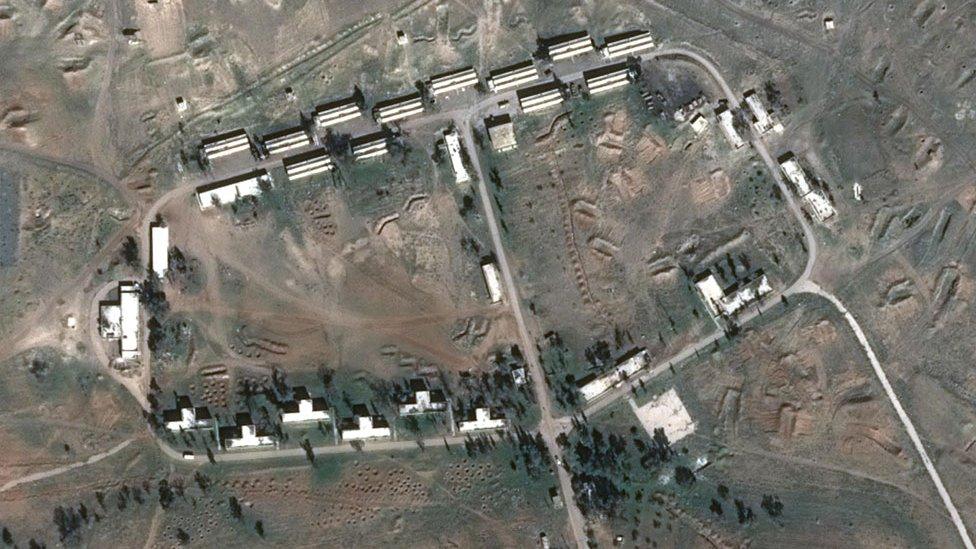Syria 'chemical attack': Trump cancels Latin America trip
- Published
The US president has said "nothing's off the table" - so what options are on the table?
US President Donald Trump has cancelled his first official trip to Latin America to focus on the issue of a suspected chemical attack in Syria.
He will remain in Washington to "oversee the American response to Syria", the White House said.
Meanwhile, the global chemical weapons watchdog has said it will send a fact-finding team to the site in Douma.
Medical sources say dozens were killed in the alleged attack there, but exact numbers are impossible to verify.
The Organisation for the Prohibition of Chemical Weapons (OPCW), external said a team would deploy to Syria "shortly".
It comes after Syria and its military backer, Russia, both said they wanted to facilitate a visit by inspectors. Syria denies being behind any chemical attack.
At the United Nations Security Council on Tuesday, Russia, as expected, vetoed a US proposal for a new panel to investigate and apportion blame for chemical attacks in Syria. A previous panel ended in November after Russia used its veto to stop it being renewed.
US Vice-President Mike Pence will travel in President Trump's place for the Latin America trip, which begins in Peru for the Summit of the Americas.
Will there be a military strike?
Mr Trump has promised a "forceful" response, and has spoken of numerous military options. His Defence Secretary, James Mattis, has also cancelled travel plans this week.
Last April, after a Sarin nerve agent attack killed more than 80 people in a Syrian opposition-held town, Mr Trump ordered the firing of dozens of cruise missiles at a Syrian government air base from US Navy ships in the Mediterranean.
It was the first direct US military action against forces commanded by Syrian President Bashar al-Assad.
Since Saturday's incident, Washington has been in discussion with Britain and France, raising the prospect of co-ordinated Western military action.
A US Navy guided-missile destroyer, the USS Donald Cook, is in the Mediterranean.
Mr Trump's decision to cancel his Latin America trip suggests the US response may involve a larger military operation than a limited strike, says the BBC's Barbara Plett Usher in Washington.
French President Emmanuel Macron said that if military action was taken, it would target "the regime's chemical capabilities", and not the forces of its allies Russia or Iran. Speaking in Paris, he said he did "not want an escalation" and that a decision would be made in the coming days.
The information that France has shows "that chemical weapons were indeed used and that the regime could clearly be held responsible", Mr Macron added.
Unverified video shows children being treated after the alleged gas attack
The US and France have not released evidence to support their assessments of the alleged attack.
Neither the death toll nor what exactly occurred can be verified as the area is blocked off, with access denied.
UK Prime Minister Theresa May spoke to President Trump and President Macron in separate calls on Tuesday.
Mrs May and Mr Trump had condemned Mr Assad's "vicious disregard for human life" and "agreed not to allow the use of chemical weapons to continue", the White House said.
Russia has warned at the UN Security Council that US military action could have "grave repercussions".
What happened on Saturday?
Syrian opposition activists, rescue workers and medics allege that bombs filled with toxic chemicals were dropped on Douma, in the Eastern Ghouta region, near the capital Damascus, by Syrian government forces.
The Syrian-American Medical Society said more than 500 people were brought to medical centres, external with symptoms "indicative of exposure to a chemical agent".

It said this included breathing difficulties, bluish skin, mouth foaming, corneal burns and "the emission of chlorine-like odour".
The estimates of how many people died in the suspected chemical attack range from 42 to more than 60 people, but medical groups say numbers could rise as rescue workers gain access to basements where hundreds of families had sought refuge from bombing.
The French representative at the UN Security Council said poison gas had deliberately been used as it could seep down to the basements.
- Published10 April 2018
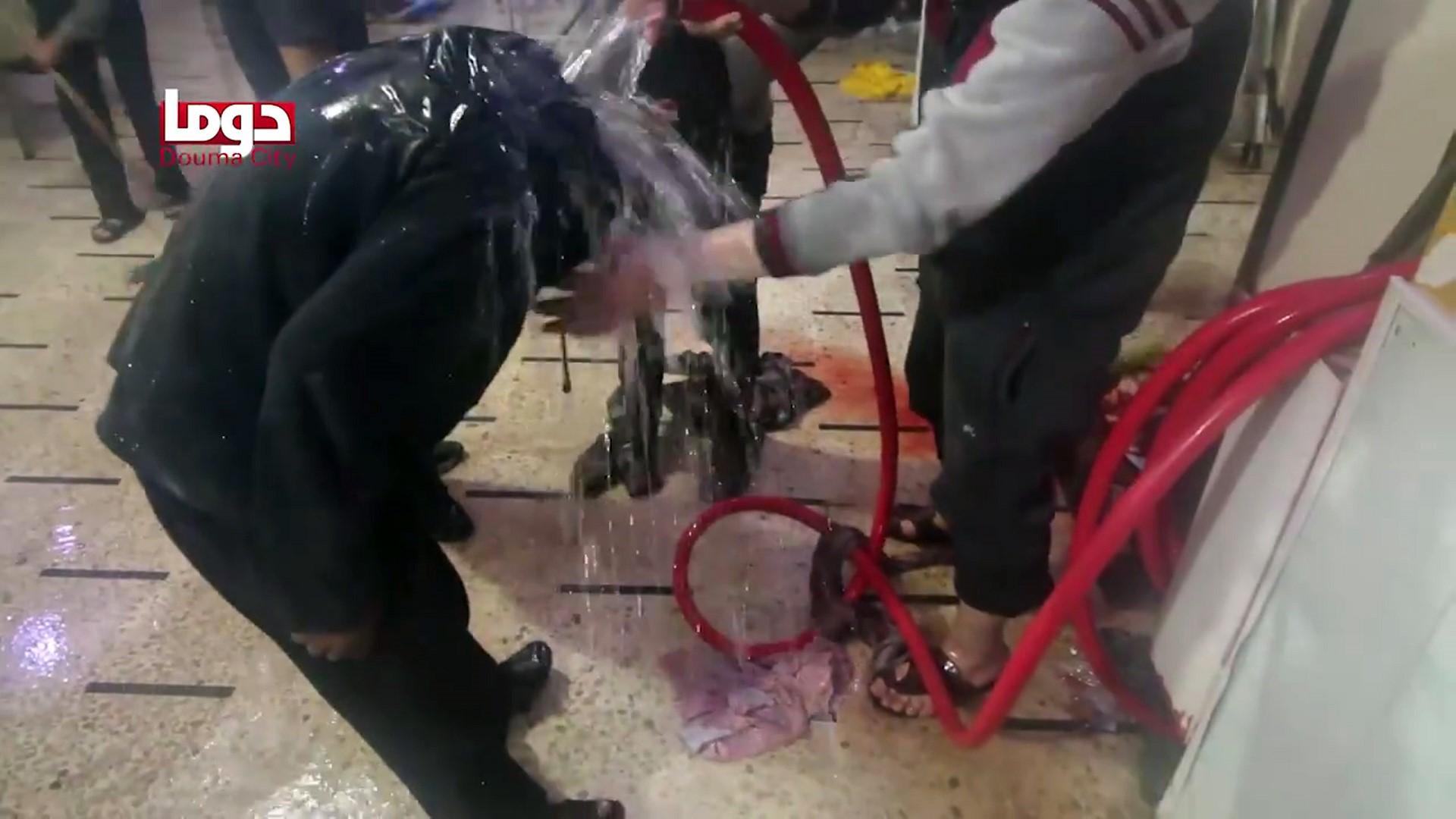
- Published11 April 2018
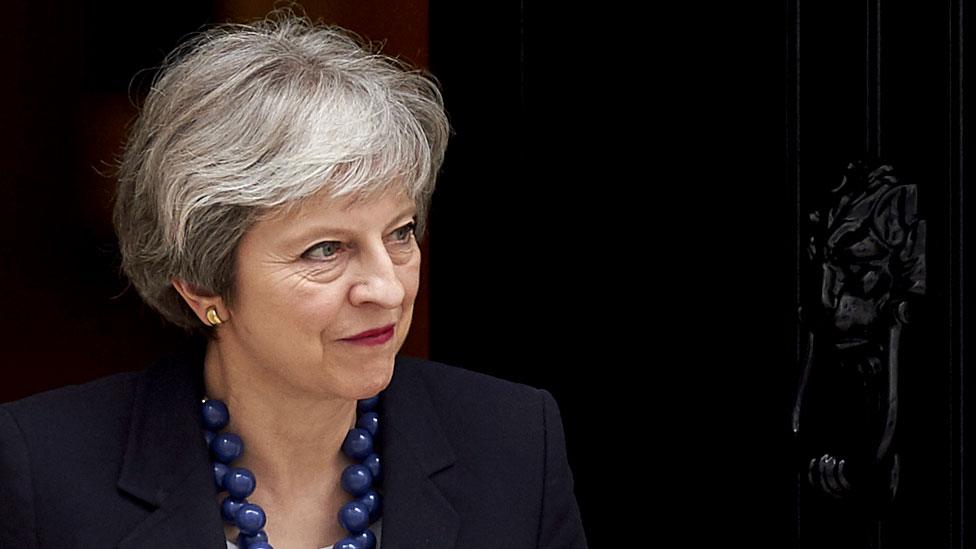
- Published9 April 2018
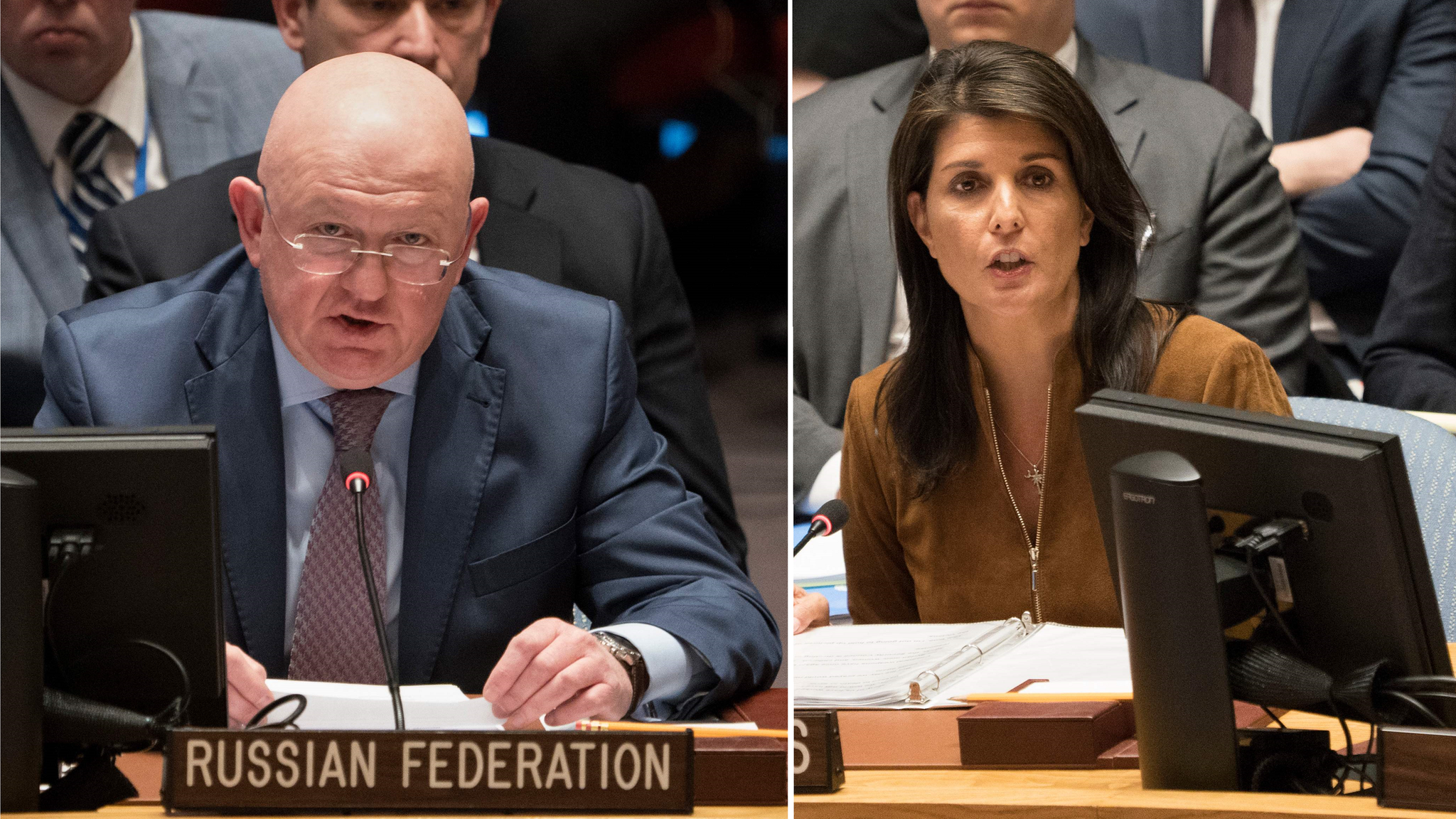
- Published9 April 2018
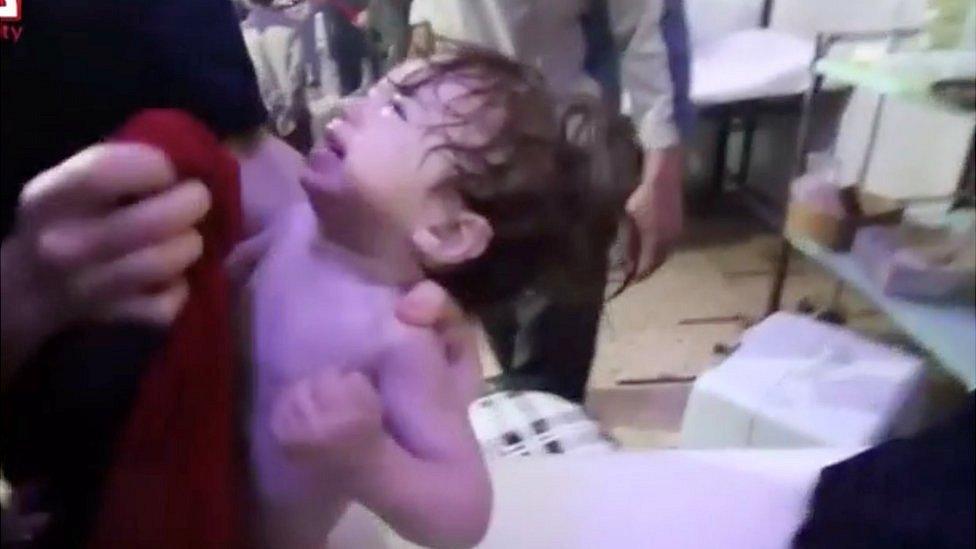
- Published9 April 2018
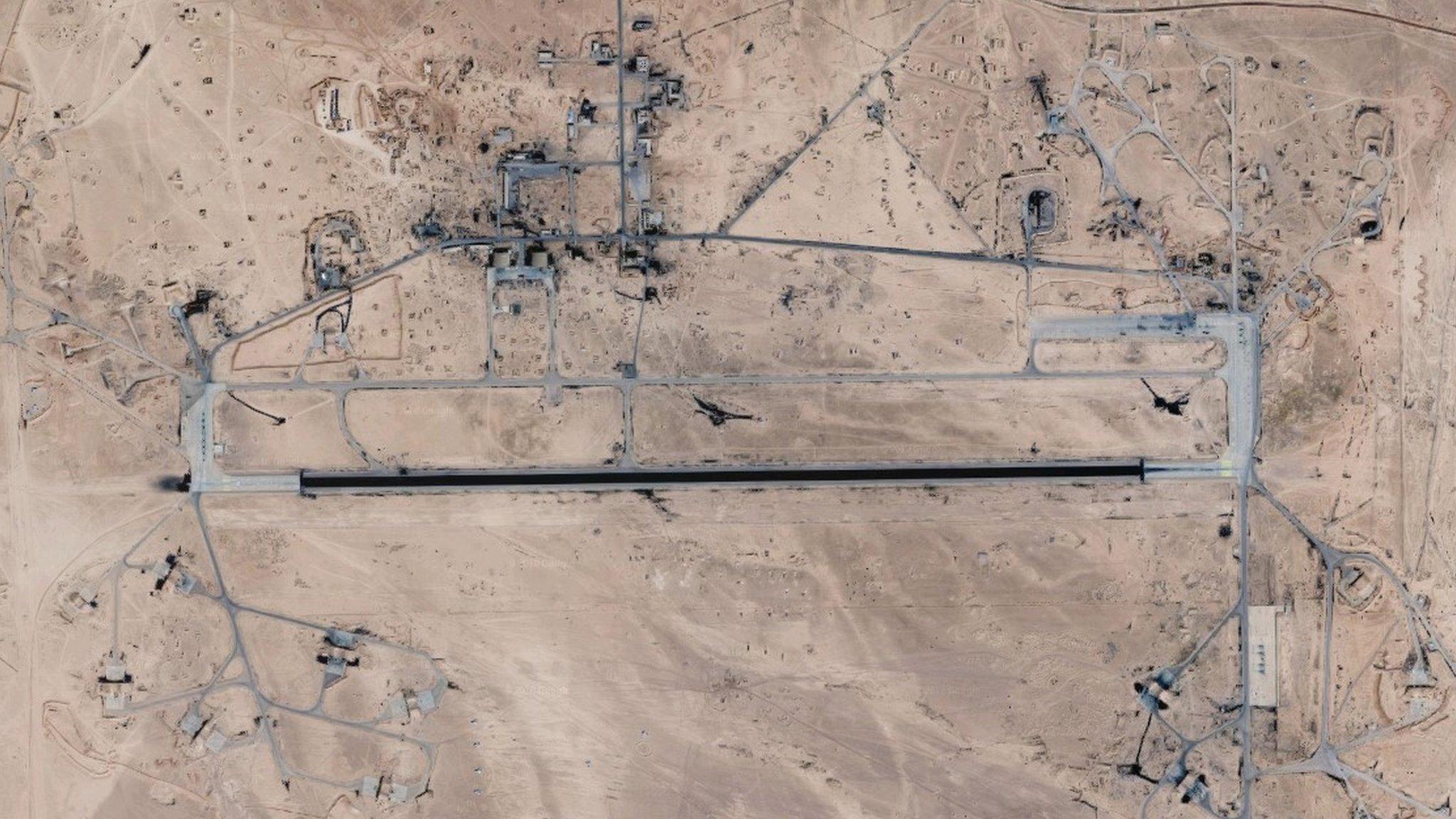
- Published8 April 2018
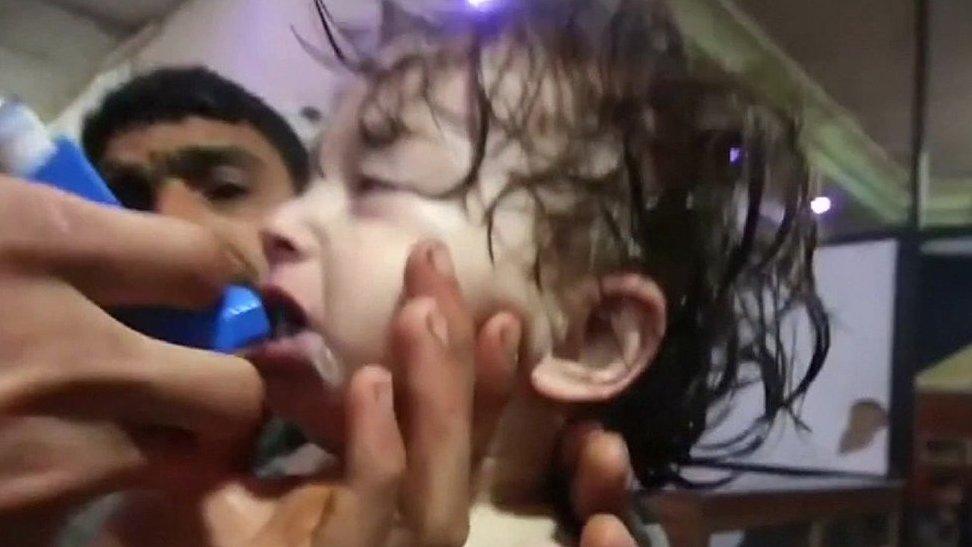
- Published9 April 2018
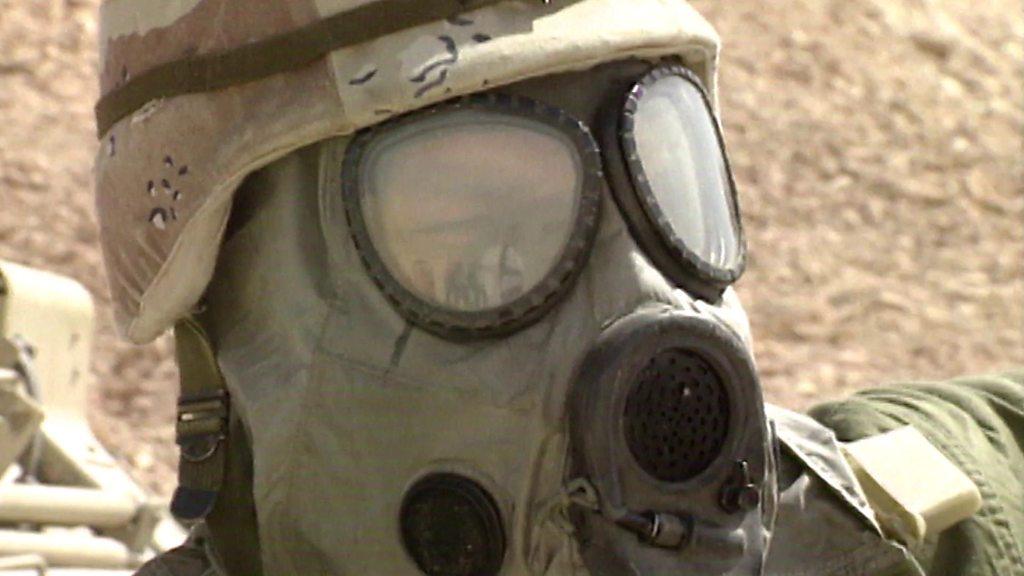
- Published8 April 2018
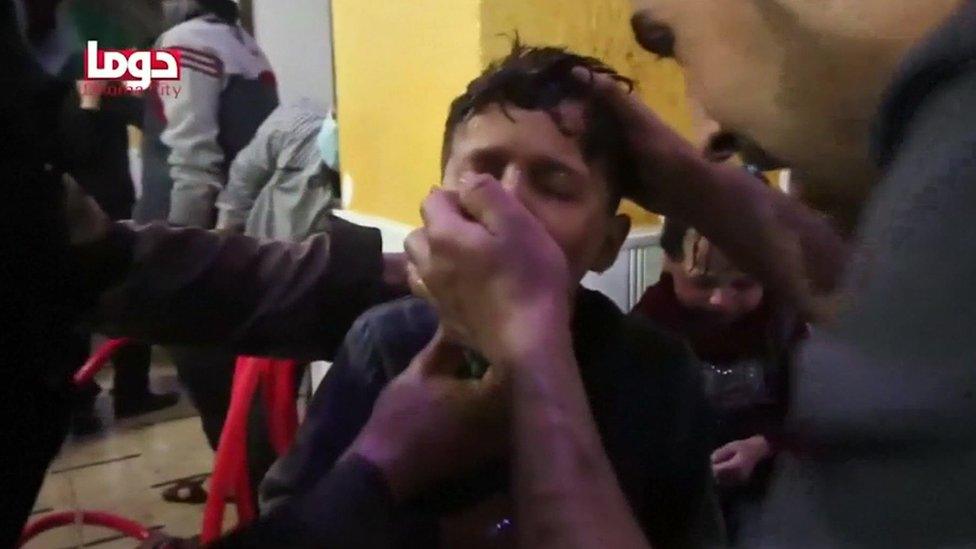
- Published9 April 2018
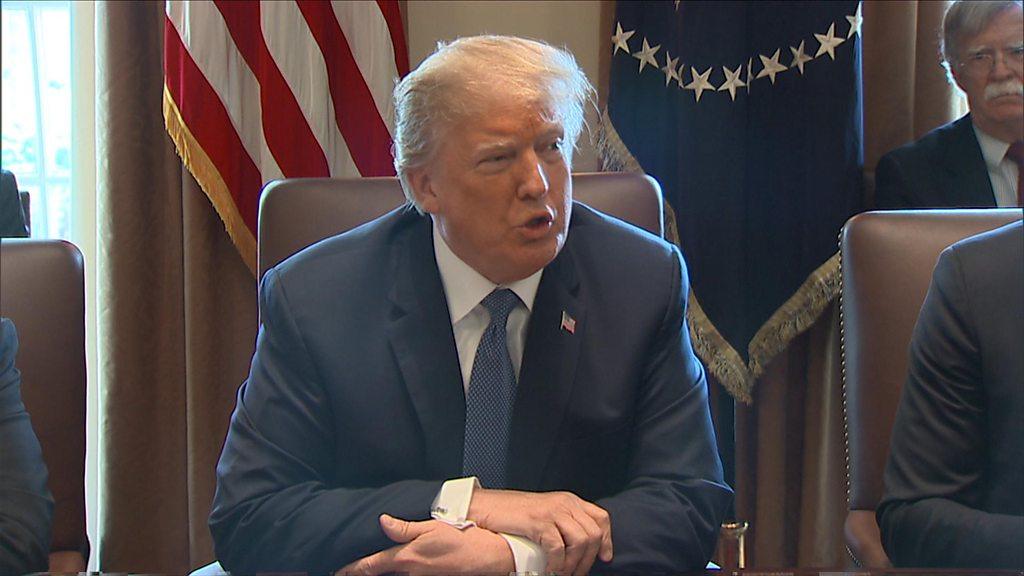
- Published2 May 2023

- Published10 November 2017
